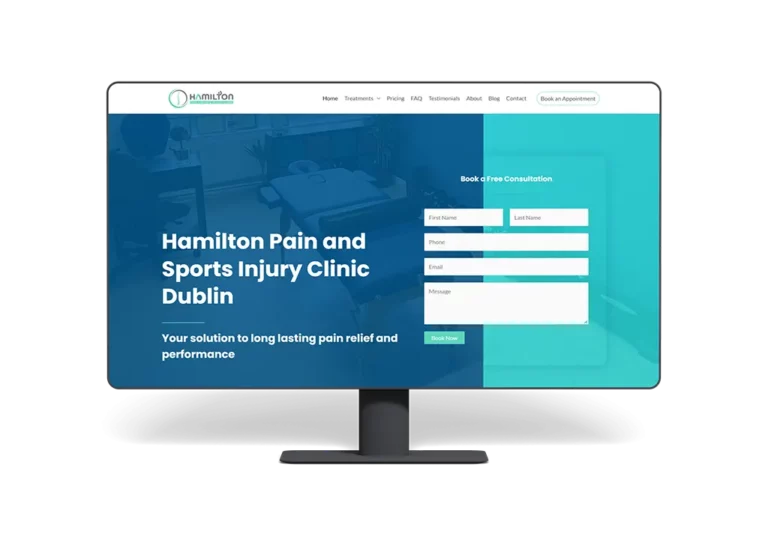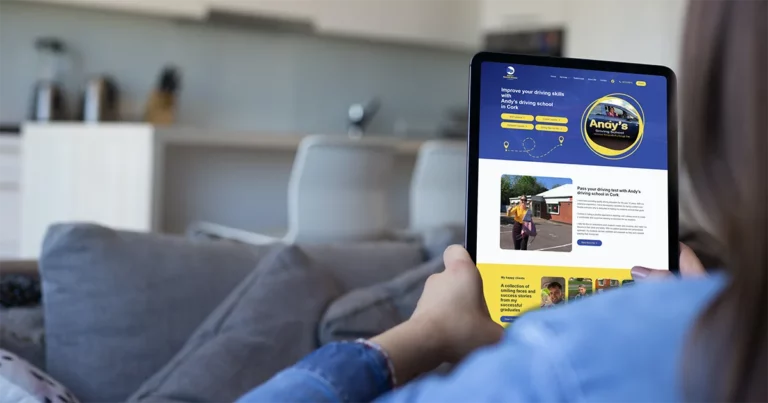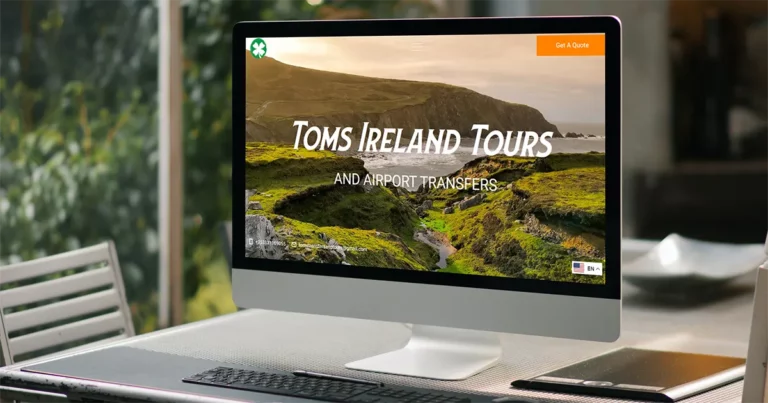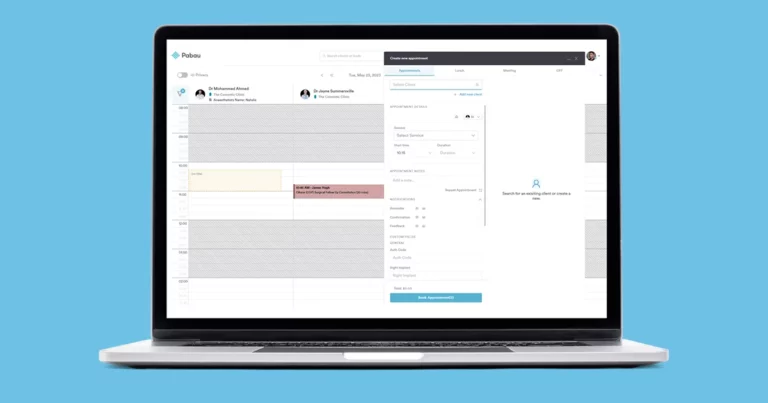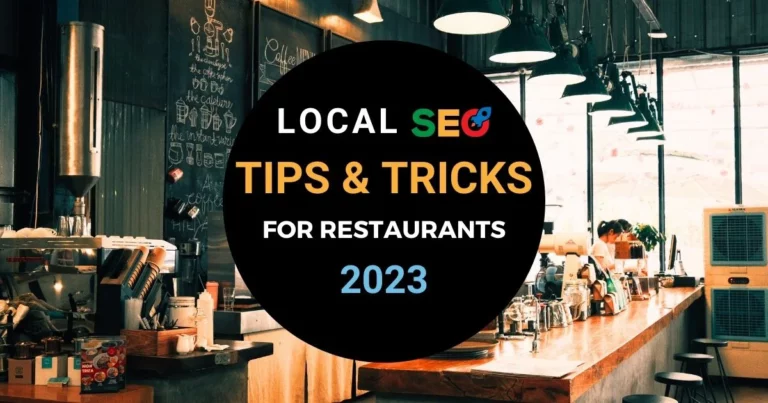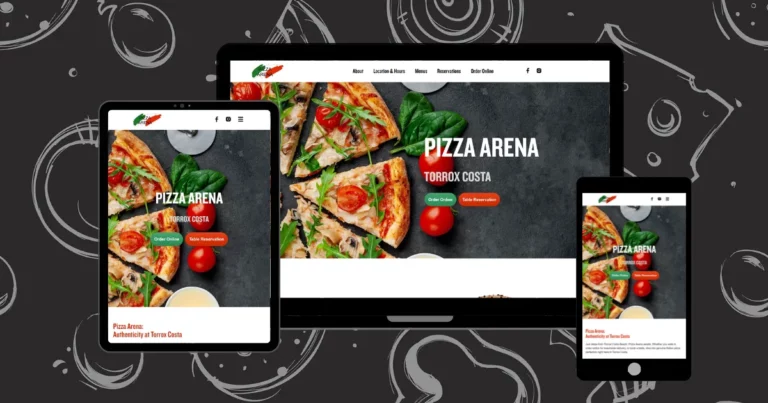Gone are the days of keyword stuffing and trying to rank for “cheap car insurance” by posting 25 different articles a day. SEO is about having a clear idea of what your business is about, what your goals are, and how you can improve your visibility for customers who will be interested in you.
Search engine optimisation is a constant battle but SEO tips can help protect your ranking in the future. This blog post covers the top 17 SEO tips which Irish businesses should be following now to stay on top of the game.
SEO: The Importance
As the internet continues to grow and expand, so too does the importance of SEO. Search Engine Optimization is no longer a secret technique that only the big businesses know about- nowadays, it’s an essential part of any good marketing strategy, no matter the size of your company.
If you’re a small business owner, you might be wondering how SEO can help you. After all, doesn’t it just benefit those who are at the top of the search engine results pages? While it’s true that better rankings can lead to more website traffic, there are plenty of other benefits that make SEO worth your while. Here are just a few:
SEO Can Help You Build Trust and credibility
In today’s digital world, people are increasingly turning to the internet to find information about products and services before making a purchase. If your website is ranking high in the search results for relevant keywords, potential customers will see this as a sign that you’re a reputable and trustworthy business. On the other hand, if your website is nowhere to be found, they may go with one of your competitors instead.
SEO Can Drive More Targeted Traffic to Your Website
When someone does a search on Google or another search engine, they usually have something specific in mind. This could be anything from looking for a new pair of shoes to researching their options for treatment for an illness. If your website is optimised for a set of keywords that are related to your business and services, then your website has a greater chance of appearing as a top result when they carry out their search. This not only allows you to generate additional traffic to your website but can also mean an increase in inquiries and therefore sales or bookings.
What Are Long Tail Keywords?
Most people rarely search for just one word, they are usually a combination of a few, especially when they are aiming to make a purchase. Your users, customers, or clients could be searching for a combination of your services, along with things like ‘special offers’, ‘near me’, ‘discount codes’, ‘customer reviews’, ‘professional’, etc.
Although you may want to rank for a simple one-word search term, the competition near the top of the rankings can be difficult to compete against. The probability of achieving a 1st-page ranking for a general one-word term is not high. A better option is to aim this keyword further down the rankings, be creative, and use other keywords to help the crawling process note the type of product or content you offer.
Being that you want to be found for a one-word search term, which is a broad, general expression, means that it’s most likely other broad, general sites that you’re competing against.
You’ll have to contend with competitive SEO companies that have been optimizing websites for a long time, and may have significant advantages in terms of prominence, age, and recognition.
One-word terms are also challenging for crawlers to identify, in terms of matching all content to the target expression. Narrowing your focus and including more keywords in your title and meta tags will help the crawlers recognize your content as relevant to the particular phrase you’re targeting.
The Future of SEO
The future of small business SEO is shrouded in potential but fraught with uncertainty. The next few years could see a fundamental shift in the way we search for and discover information online, making SEO an even more important tool for small businesses to stay visible and relevant. Here are some tips to help get your small business ready for the future of SEO:
Understand voice search and how it works:
One potential game-changer on the horizon is voice search. With the proliferation of smart speakers and devices like Siri, Google Assistant, and Alexa, more and more people are using their voices to search for information online. This trend is only going to grow in the coming years, so it’s important to understand how voice search works and optimize your content accordingly.
Write for humans first, machines second:
Another important change to keep in mind is the increasing importance of machine learning in Google’s algorithm. This means that Google is getting better at understanding user intent and delivering more relevant results. As a result, your content needs to be well-written and informative if you want it to rank highly in search results. Gone are the days of keyword stuffing – now you need to focus on writing for humans first and foremost.
Keep an eye on mobile:
Mobile devices are becoming increasingly important in the world of SEO. Not only are more people using them to access the internet, but they are also the fastest-growing group of internet users.
17 SEO Tips To Get You Ready
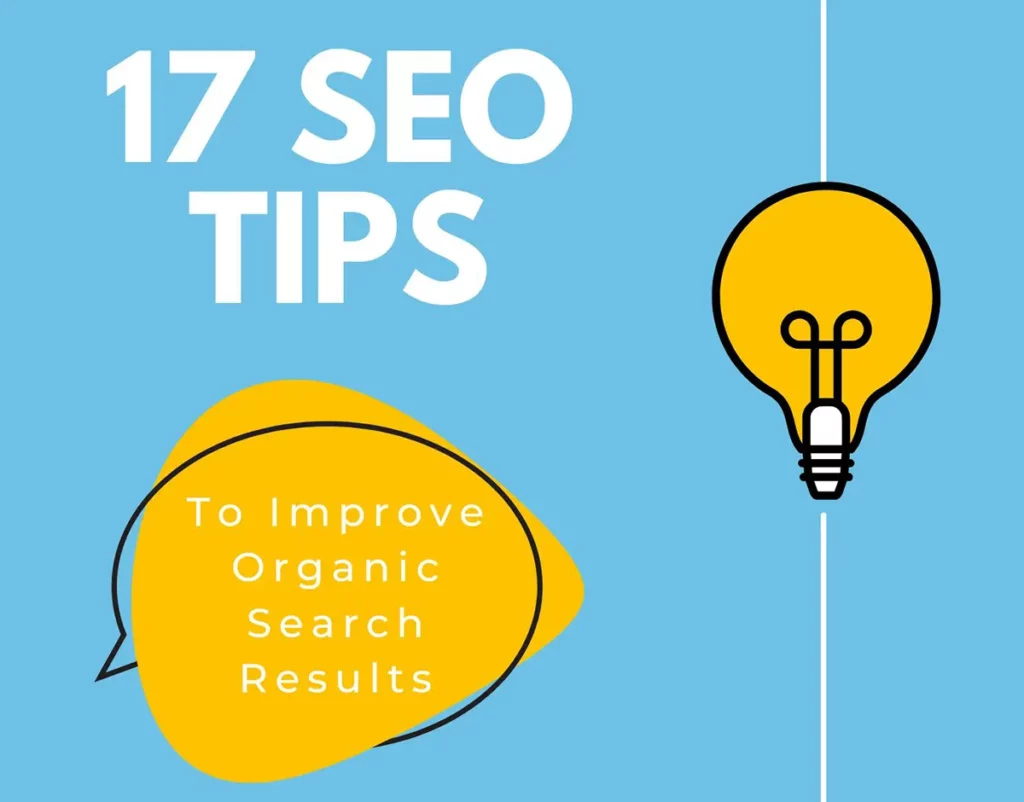
Tip 1: Perform detailed keyword research for the local market
If you want your small business to succeed in the local market, it is essential that you perform detailed keyword research. By understanding what potential customers are searching for online, you can ensure that your website appears prominently in search engine results pages (SERPs), driving traffic and sales.
There are a number of different tools and techniques that you can use to perform keyword research. Start by brainstorming a list of relevant keywords and phrases related to your business, then use a tool like Google AdWords Keyword Planner to get more ideas and get insights into how often these terms are being searched for.
Once you have a good list of keywords, take some time to optimize your website content for these terms. Use them naturally throughout your site copy, in titles and headings, and in meta descriptions. By making your site more relevant to searchers’ needs, you’ll improve your chances of ranking highly in SERPs—and generating more leads and sales for your business.
Tip 2: Don’t keyword-stuff
It’s no secret that keywords are important for ranking in search engines. But, what many small business owners don’t know is that there is such a thing as “keyword stuffing.” This is when a website stuffs its content with so many keywords that it becomes difficult to read. Not only will this turn off your potential customers, but it will also get you penalized by Google. So, how do you find the right balance?
Here are a few tips:
- Use keyword research tools to find the right keywords for your business and target market.
- Use those keywords throughout your website, including in your content, titles, and meta tags.
- Don’t go overboard – a couple of strategically placed keywords are all you need.
- Monitor your website’s search engine rankings to ensure you’re using the right keywords.
Tip 3: Include the city name in the title tags
If you’re running a small business in any city, it’s important to include the name of that city in your title tags. This helps your website show up in local search results, and can attract customers who are searching for businesses like yours in their area. Here are some tips on how to do this effectively:
- Use the city name in your primary keyword phrase. For example, if you’re a plumber in Dublin, you could use “Dublin plumbing” as your primary keyword phrase.
- Use the city name in the page title and throughout the page content.
- Make sure your NAP (name, address, and phone number) is consistent across your website and all other online listings.
By following these tips, you can help ensure that your small business website shows up in local search results and attracts customers from your target area.
Tip 4: Keep URLs simple
Keep URLs short and sweet
Shorter URLs are not only easier for users to remember, but they’re also easier for search engines to crawl and index. This is because shorter URLs tend to have less complex structures and are less likely to include unnecessary characters that can trip up search engine crawlers.
When creating your URLs, aim for no more than 60 characters in length. Use descriptive keyword phrases that accurately describe the page content, but don’t stuff your URL with keywords in an attempt to manipulate search engine rankings.
Use hyphens to separate words in your URL
Search engines interpret hyphens as spaces between words, which makes it easier for them to read and index your URL. For example, the following two URLs would be read as different phrases by a search engine:
smallbusinessseo.ie/keep-urls-simple
smallbusinessseo.ie/keepurlssimple
Tip 5: Optimize your metadata
If you want your small business to be found online, optimizing your metadata is essential. Metadata is the information that tells search engines what your website is about, and it includes things like your page titles, descriptions, and keywords.
To optimize your metadata, first make sure that your page titles and descriptions are clear and concise. Then, choose a few relevant keywords and include them throughout your site. In addition to including keywords in your metadata, you should also use them in the body of your content. By using relevant keywords throughout your site, you’ll increase your chances of ranking in search engine results pages (SERPs).
Tip 6: Use more internal links
By linking to other pages on your site, you’re giving search engines more information about your website and helping them to better understand your site’s structure.
Internal links are also a great way to keep visitors on your site longer. If they’re able to easily find the information they’re looking for, they’re less likely to click away to another website.
So how can you add more internal links to your website? Here are a few tips:
- Add links to relevant blog posts: If you have a blog, make sure to link to it from other pages on your site. You can also add links to specific blog posts from other pages on your site. For example, if you have a blog post about choosing the right domain name for your business, you could link to it from your homepage or from a page about starting a small business.
- Link to pages within your content: When you’re writing content for your website, be sure to link to other relevant pages on your site. This will help visitors find more information about the topic they’re interested in and keep them on your site longer.
- Add links in your navigation: Your website’s navigation is one of the most important places to include internal links. By linking to other pages in your navigation, you’re making it easier for visitors to find what they are looking for.
Tip 7: Earn backlinks
If you want your small business to rank higher in search engine results, one of the most important things you can do is earn backlinks. Backlinks are links from other websites to yours, and they help show search engines that your site is popular and authoritative.
To earn backlinks, start by creating high-quality content that other webmasters will want to link to. Then, reach out to other sites in your industry and ask them to link to your content. You can also submit your site to directories and post on forums to get more exposure.
Earning backlinks can be time-consuming, but it’s worth it if you want to improve your small business’s SEO. Keep at it, and you’ll see results!
Tip 8: Create more content
As a small business, it’s important to create content that is not only keyword rich, but also informative and interesting. By creating more content, you will be able to attract more visitors to your website and improve your chances of ranking higher in search engine results pages.
Some tips for creating more content include:
1. Write blog posts on a regular basis
2. Create informative articles or tutorials
3. Develop helpful resources such as ebooks or webinars
4. Create compelling infographics
5. Shoot high-quality video content
No matter what type of content you create, make sure it is well-written, keyword rich, and provides value to your audience.
Tip 9: Engage in citation building
Citation building is the process of creating citations for your business on other websites. This can be done by listing your business in directories, getting listed in local search engines, and by creating profiles on social media sites.
Creating citations helps improve your visibility online and can lead to more website traffic and customers. Here are some tips to get started with citation building:
1. List your business in relevant directories. There are many online directories that list businesses in specific categories. Make sure to list your business in relevant directories so that potential customers can find you easily.
2. Get listed in local search engines. Many people use local search engines to find businesses near them. To get listed, simply add your business information to these search engines.
3. Create profiles on social media sites. Social media sites are a great way to connect with potential and current customers. Creating profiles on sites like Facebook, Twitter, and LinkedIn will help improve your visibility online and attract more leads.
Tip 10: Utilise emerging search trends
As mentioned, SEO is constantly changing so it’s important to stay up-to-date with the latest trends. One way to do this is by utilising emerging search trends. For example, if you’re a local business, you could use trending local search terms or keywords in your content to make sure you’re appearing in relevant searches.
Tip 11: Optimize website page speed
Slow website speeds can kill your chances of ranking in Google, so it’s important to make sure your pages are loading as quickly as possible. Here are a few tips to help you optimize your website’s page speed:
1. Use a content delivery network (CDN). A CDN can help improve page load times by caching your website’s content on servers around the world.
2. Optimize images. Large images can slow down your pages, so make sure to compress them before uploading to your website.
3. Minimize HTTP requests. Each time a browser request data from your server, it adds to the overall page load time. So, minimizing HTTP requests can help speed up your pages.
4. Use caching. Caching helps store frequently accessed data so that it doesn’t have to be loaded from scratch each time a user visits your site. This can significantly improve page load times.
5. Enable Gzip compression. Gzip is a type of compression that can reduce the size of files being transferred from your server to the user’s browser.
6. Use a fast hosting provider (cheap = slow)
Tip 12: Connect with businesses in your area
As a small business, it’s important to connect with other businesses in your area. There are a few ways to do this:
1. Attend local business events. This is a great way to meet other business owners and get your name out there. Make sure to bring plenty of business cards!
2. Get involved with local chambers of commerce or business associations. This is another great way to network with other businesses in your area.
3. Join local online directories and forums. This will help you get found by potential customers who are searching for businesses like yours online.
4. Make sure your website is optimized for local search. Include your city and state in your titles and tags, and make sure your NAP (name, address, phone number) is prominently displayed on your site.
5. Claim your Google My Business listing. This free listing allows you to control how you appear in Google Maps and Google Search results, and can help boost your visibility in the local search results.
Tip 13: Share customer stories
Encourage your customers to sing your praises online—it’s good for them, and it’s great for your business. Customer stories are one of the most effective pieces of content you can share to show off your product or service in action and build trust with potential new customers.
Make it easy for customers to leave reviews by setting up profiles on popular sites like Google My Business, Facebook, and TripAdvisor. If you have a physical location, make sure you’re also asking customers to review you on Foursquare. And don’t forget to monitor what people are saying about you on social media—responding to both positive and negative feedback shows that you care about your online reputation.
Tip 14: Incentivise reviews
If you’re not already incentivising customers to leave reviews, now is the time to start. Reviews are one of the most important ranking factors for local SEO, and they can also be a major source of traffic for your website.
There are a few different ways that you can incentivise customers to leave reviews:
1. Offer a discount or coupons in exchange for reviews.
2. Make it easy for customers to leave reviews by providing links on your website and social media profiles.
3. Use review platforms that offer rewards, such as Google Local Guides.
4. Give customers a reason to leave positive reviews by providing excellent customer service and products.
Tip 15: Be resourceful
As a small business, you may not have the resources of a large corporation. But that doesn’t mean you can’t compete with them online. Being resourceful is key to any good SEO strategy.
Here are some tips for being resourceful in your SEO strategy:
1. Use free tools and resources. There are plenty of great free SEO tools out there that can help you research keywords, track your progress, and more. Just because you’re on a budget doesn’t mean you have to skimp on quality.
2. Get creative with content. You don’t need a big budget to produce high-quality content. There are plenty of ways to get creative with content and get it noticed by search engines and potential customers alike.
3. Leverage social media. Social media is a great way to connect with potential customers and promote your content for free. Make sure you’re using social media effectively as part of your overall SEO strategy.
4. Think outside the traditional marketing channels. If you want to reach new customers, you need to think outside the box when it comes to marketing and promotion. Traditional marketing channels like print ads or television commercials may not be the best use of your limited resources. Instead, look for creative ways to market your business online and offline.
5 . Stay up-to-date on the latest trends.
Tip 16: Plan your content
before you start cranking out blog posts and web pages, it’s important to take the time to plan your content.
Here are a few tips to help you get started:
1. Know Your Target Audience
Before you start creating any content, it’s important that you know who your target audience is. What are their demographics? What are their interests? What problems do they need solved? Once you have a good understanding of who your target audience is, you can start creating content that appeals to them.
2. Figure Out What Type of Content You Need
There are different types of content, and each serves a different purpose. For example, blog posts are great for providing valuable information, while product pages are great for showcasing your products and services. Once you know what type of content you need, you can start brainstorming ideas.
3. Brainstorm Ideas for Your Content
Once you know what type of content you need, it’s time to start brainstorming ideas for it. If you’re not sure where to start, try thinking about what questions your target audience has that you can answer with your content. Or consider covering topics that would be helpful or interesting to them.
4. Create an Editorial Calendar
An editorial calendar directs the content by setting high-level themes over a long period of time. It is used to plan ahead for upcoming material, allowing teams time to create, repurpose, or curate relevant content as it fits into the publishing schedule.
Think of the editorial calendar as the strategy and the content calendar as the execution. The editorial calendar guides the content that will be published. And the content calendar defines and publishes the specific content. When used together, they’re a powerful duo.
Both of them will help you plan, organize and track your publication schedule and make your content process easier.
Tip 17: Expect SEO to take a while
If you’re just starting out with SEO, it’s important to understand that it takes time to see results. Although there are a number of things you can do to improve your site’s ranking in search engine results pages (SERPs), it takes time for these changes to take effect.
This is especially true if you’re a small business. Because you have less authority than a larger website, it can take longer for your SEO efforts to show results. However, this doesn’t mean that you shouldn’t bother with SEO.
Even if it takes a while to see results, the effort is worth it. After all, once you do start ranking higher in SERPs, you’ll likely see an increase in web traffic and leads. And, over time, as your website continues to grow and gain more authority, your SEO efforts will become even more effective.



